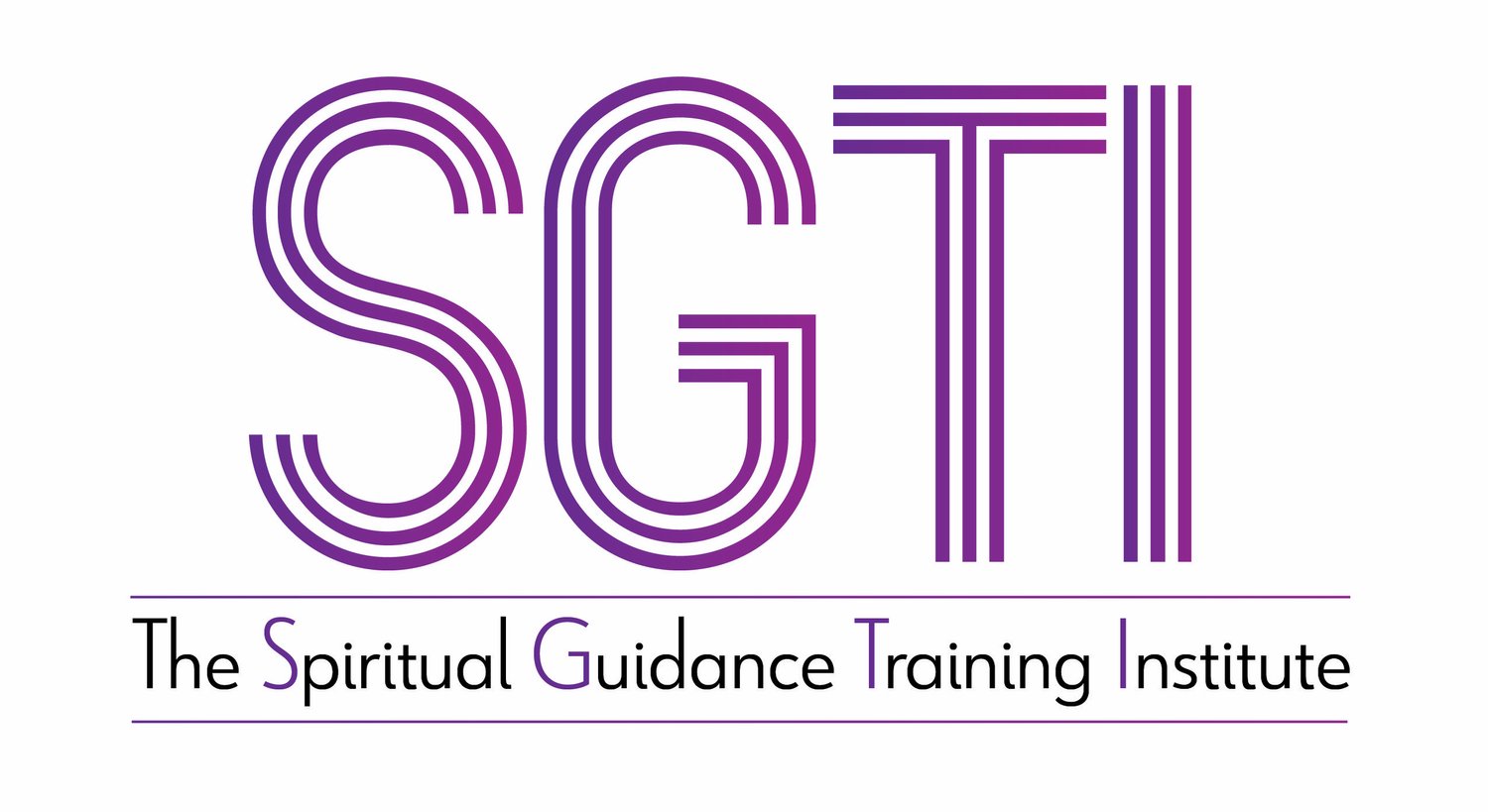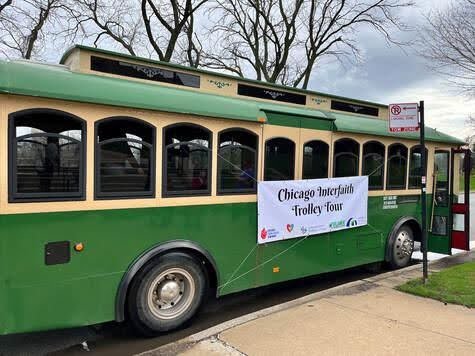The Wondering Process of Spiritual Inquiry
5/2/2022
The Wondering Process of Spiritual Inquiry: A Description of an Interreligious Event in Chicago
One of the ways in which the SGTI engages with others who practice different religious, spiritual and ethical traditions is by participating in ‘day pilgrimages’, which are experiences in sacred spaces. Recently, one of our co-founders attended an event that The Chicago Theological Seminary, in collaboration with the Lutheran School of Theology Chicago, Parliament of World’s Religions, American Islamic College, and Hyde Park and Kenwood Interfaith Council hosted: A trolley tour through Chicago in acknowledgment and celebration of the convergence of so many sacred holidays during the month of April.
The trolley tour stopped at five different sites and the experience culminated with iftar, the meal eaten by Muslims after sunset during the month of Ramadan.
The title of this post is credited to a statement that one of Chicago Theological Seminary’s staff used in an introduction to the event. Indeed, the entire day felt like a “wondering process of spiritual inquiry” as we made our way through Chicago’s diverse southside neighborhoods. The first stop was Rockefeller Chapel, a Gothic Revival Chapel on Chicago Theological Seminary’s campus. We heard from three speakers: a Sikh who described Vaisakhi, the collective unification of the Sikh community; a Hindu who discussed Ram Navami, which celebrates the birth of Lord Rama, the seventh avatar of the deity Vishnu; and a Jain, who discussed the celebration of Vardhaman Mahavir, the birth of the last enlightened one.
On our second stop we visited Ebenezer Baptist Church, a former Jewish synagogue and the birthplace of gospel music. At the church, we heard from the leadership about the Christian holiday, Easter which celebrates the cycle of life, death, and resurrection.
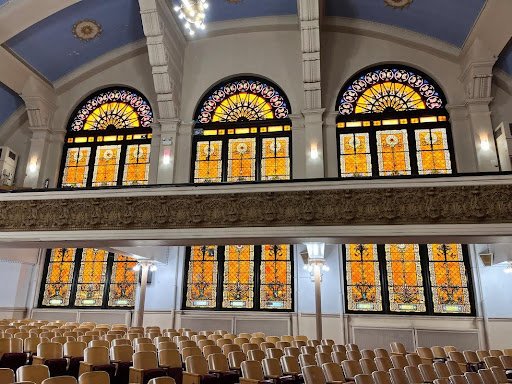
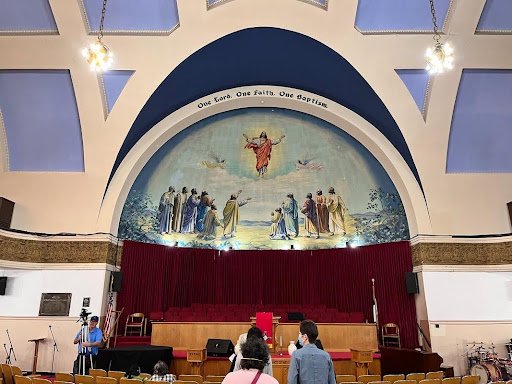
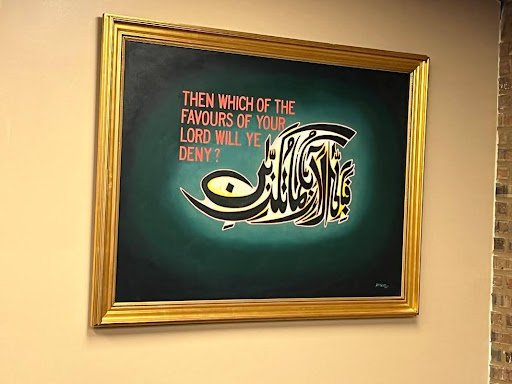
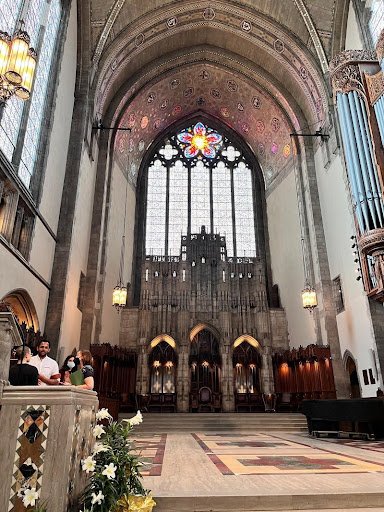
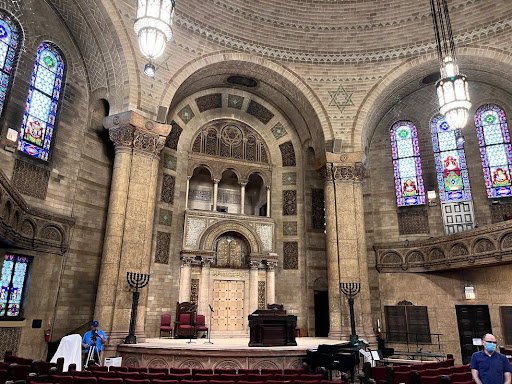
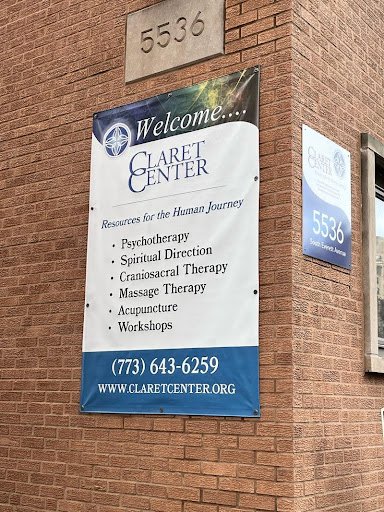
On our third stop we visited KAM Isaiah Israel Synagogue, the oldest synagogue in Chicago. There, we learned about the Jewish holiday, Passover, where Jews look to the past to remember the Israelites’ freedom from slavery in ancient Egypt and expectantly look to the future.
On our fourth stop we visited Claret Center, an organization that incorporates psychotherapy, spiritual direction, craniosacral therapy, acupuncture, and workshops. We also had a conversation with two scholars and practitioners who identify as multiply religious: an ordained Buddhist and ordained Christian who identifies as Christo-Buddhist and an ordained Buddhist priest and Zen monk.
Our fifth stop before returning to the seminary for iftar was a mosque, the Taqwa Center for Community Excellence Rehab Project associated with the African-American Muslim leader, theologian, philosopher, Muslim revivalist, and Islamic thinker, Warith Deen Mohammed. We learned about Muslim culture and the celebration of Ramadan, when Muslims fast from dawn to sunset.
On our final stop, we learned more about Ramadan and participated in a prayer before iftar. We considered how fasting is both a metaphor for emptiness for God to inhabit, as well as a mechanism for calling us to live in an “altered and restored state where we are more connected to people”.
The overall experience was very positive and served to facilitate new questions about the traditions, people and practices; considerations of interior movements, such as thoughts, imaginings, emotions, inclinations, desires, feelings, repulsions, and attractions; physical/body sensations that were felt during the event; and growth in appreciative knowledge for the dedicated and devoted seekers of the religious, spiritual, and ethical traditions. Experiences like the trolley tour and iftar remind us that building relationships across traditions enhances respect and understanding, promotes continued learning, improves our attitudes towards differences, highlights our commonalities, and diminishes fear.
We extend our gratitude to Chicago Theological Seminary and additional collaborators and sponsors for hosting such a meaningful event.
~ Jeanette Banashak
